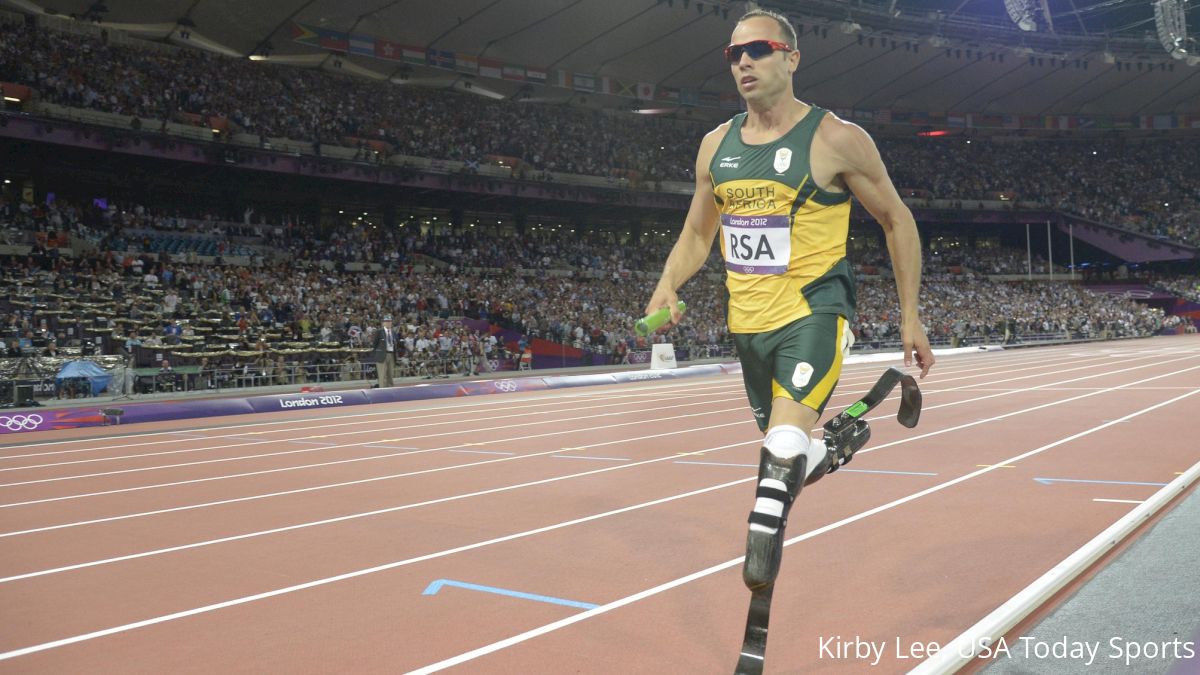Oscar Pistorius, Track Star Convicted Of Murder, To Be Released On Parole
Oscar Pistorius, Track Star Convicted Of Murder, To Be Released On Parole
Oscar Pistorius, the South African Paralympic runner, will be paroled from prison after serving half of his sentence for the murder of his girlfriend.

Oscar Pistorius, the South African Paralympic runner who captivated the world with his inspiring pursuit to compete against able-bodied athletes at the highest level of the sport, will be released from prison on parole Friday after serving half of his sentence for the 2013 murder of his girlfriend, Reeva Steenkamp.
Pistorius, 37, was granted parole on November 24 after serving 11 years of his sentence. South Africa's Department of Correctional Services said that Pistorius would complete the remainder of his sentence, which expires in December 2029, in the country's community corrections system.
As conditions of his parole, he will be assigned a monitoring official, will not be allowed to consume alcohol and other prohibited substances, and will be restricted from doing media interviews
Pistorius, who was born without fibulas and had both legs amputated below the knees as an infant, burst onto the athletics scene in 2004 when he won 200m gold at the Paralympic Games in Athens.
Nicknamed “The Blade Runner” for his carbon-fiber prosthetics, Pistorius quickly turned his attention to proving he could compete with able bodied athletes ahead of the 2008 Beijing Olympics. But the International Association of Athletics Federations (now World Athletics) banned Pistorius from competing, stating his prosthetics provided him with an unfair advantage. The ban was eventually overturned by the Court of Arbitration for Sport, but Pistorius fell 0.70 seconds short of the Beijing qualify standard.

Pistorius’ star only grew brighter after he swept the 100m, 200m, and 400m gold medals at the Beijing Paralympics. Over the next Olympic quadrennial, he competed successfully against able bodied athletes at several international meetings and was a spectator draw at all of them as his story of personal triumph transfixed the track and field fanbase.
In 2012, he hit the London Olympic qualifying standard with a season-best 45.20 in Pretoria. He became the first double-amputee to compete at the Games, winning his opening heat of the 400m in 45.44. In the semifinals, he finished seventh in 46.54. He also anchored South Africa’s 4x400m team to a seventh-place finish in 3:03.46. Later that summer, he won gold in the 400m and 4x100m relay and silver in the 200m at the London Paralympics.
But Pistorius’ life took a drastic and stunning turn on the night of February 14, 2013, when he shot and killed 29-year-old model girlfriend Steenkamp.
At trial, Pistorius, who was a gun enthusiast, testified that he believed Steenkamp was an intruder when he shot her several times with ammunition designed to inflict maximum damage to the human body.
He was initially sentenced to five years in jail in 2014 for culpable homicide. His sentence was changed to six years in 2015 when the Supreme Court of Appeal found him guilty of the more serious charge of murder. Prosecutors argued that that punishment was too lenient, and the sentence was eventually increased by 13 years.
Related Content
 Replay: Continental Tour: Huelva | Apr 30 @ 4 PM
Replay: Continental Tour: Huelva | Apr 30 @ 4 PMApr 30, 2024
 Akani Simbine Produces 100m Stunner At Diamond League Shanghai/Suzhou
Akani Simbine Produces 100m Stunner At Diamond League Shanghai/SuzhouApr 29, 2024
 Texas A&M Track And Field At Penn Relays 2024: Aggies Results
Texas A&M Track And Field At Penn Relays 2024: Aggies ResultsApr 28, 2024
 TCU Track And Field At Penn Relays 2024: TCU Results
TCU Track And Field At Penn Relays 2024: TCU ResultsApr 28, 2024
 Ohio State Track And Field At Penn Relays 2024: OSU Results
Ohio State Track And Field At Penn Relays 2024: OSU ResultsApr 28, 2024
 Penn Relays 2024 Results: See Which NCAA Stars Won
Penn Relays 2024 Results: See Which NCAA Stars WonApr 27, 2024
 Harvard Track And Field At Penn Relays 2024: Crimson Results
Harvard Track And Field At Penn Relays 2024: Crimson ResultsApr 27, 2024
 Michigan Track And Field At Penn Relays 2024: Wolverines Results
Michigan Track And Field At Penn Relays 2024: Wolverines ResultsApr 27, 2024
 Houston Track And Field At Penn Relays 2024: UH Results
Houston Track And Field At Penn Relays 2024: UH ResultsApr 27, 2024